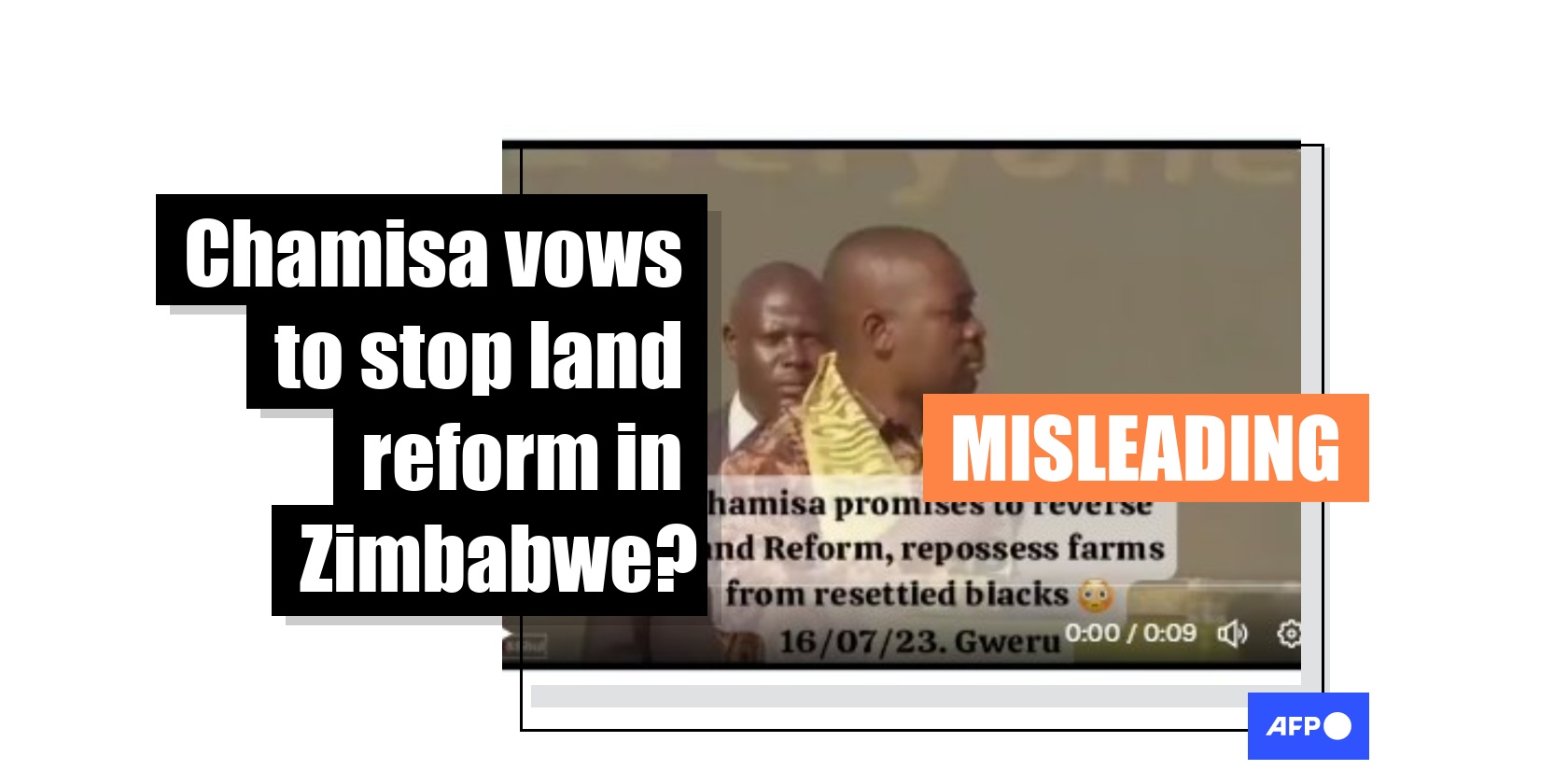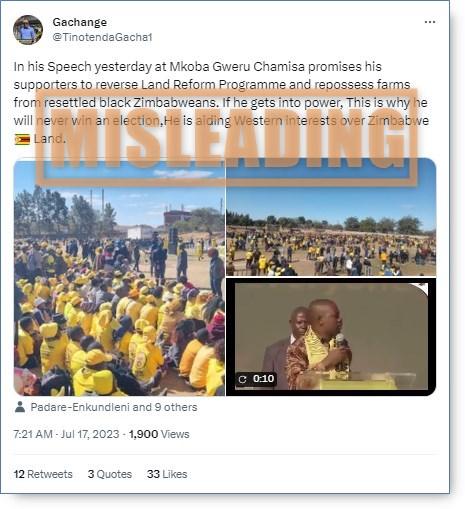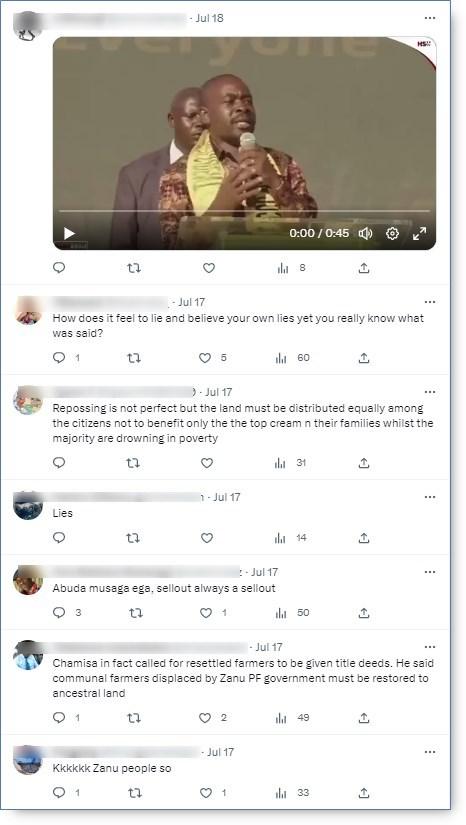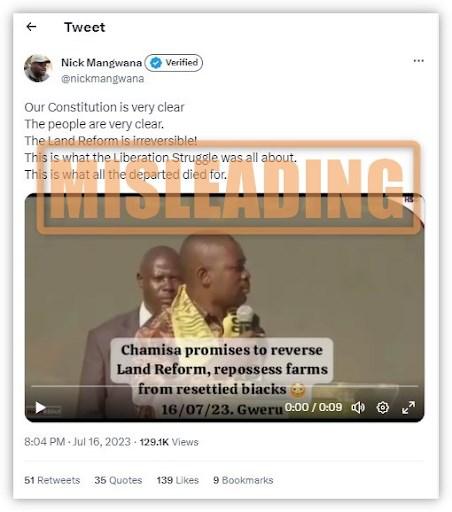
Edited clip of Zimbabwean opposition leader’s speech on land reform shared out of context
- This article is more than two years old.
- Published on July 26, 2023 at 14:05
- 3 min read
- By Tendai DUBE, AFP South Africa
"In his Speech yesterday at Mkoba Gweru, Chamisa promises his supporters to reverse Land Reform Programme and repossess farms from resettled black Zimbabweans (sic)," reads a post published on July 17, 2023.
"This is why he will never win an election, he is aiding Western interests over Zimbabwe Land."
The post on Twitter, which is being rebranded as 'X', features pictures of CCC supporters wearing the party's yellow colours at the launch rally on July 16, 2023. It also has a 10-second video of Chamisa speaking in Shona.
"The land issue is an important point, everyone who was removed from the land should be returned -- that’s where we should start," Chamisa says in the short clip.

Reactions to the post were mixed, with some calling it misleading while others labelled Chamisa a "sellout".

Government spokesman Nick Mangwana also posted the short clip on July 16, 2023, calling the land reform "irreversible".

The Movement for Democratic Change (MDC), the forerunner to the CCC, had previously said land reform should be de-racialised and that the distribution of land should be done fairly (archived here).
However, Chamisa himself did not promise to reverse the land reform programme started under Mugabe.
What Chamisa really said
AFP Fact Check found Chamisa's full speech in a video posted on the CCC’s official YouTube channel on July 17, 2023 (archived here).
Approximately 21 minutes into the footage, he talks about the government’s expropriation of ancestral land – not farms that were under white ownership as implied in the misleading posts.
"Others have been displaced and had their farms taken from them... Don't be misled, when I am elected, I will give you title deeds so that you won't be removed," Chamisa said in Shona, citing the examples of Dinde, Chilonga, and Mutoko (archived here, here and here) where villagers and rural farmers have faced eviction in favour of mining.
In 2022, the CCC accused officials from the ruling Zanu-PF of harassing farmers who had been given resettlement offers by demanding their support at the polls (archived here).
"The land issue is an important point, all those who have been removed must be returned -- that's where we will begin," Chamisa said in his address, referring to farmers displaced from their ancestral land.
During the CCC’s inaugural rally in February 2022, Chamisa had made his stance clear on the government’s formal land reform policy, saying he "unreservedly agree with the land reform, minus the other challenges of violence" (archived here).
Land reform context
As reported by AFP, Zimbabwe launched controversial land reforms in 2000 when ruling Zanu-PF party activists and veterans of the 1970s liberation -- under then president Robert Mugabe -- forcibly took more than 4,000 farms from the country's 4,500 white large-scale commercial farmers (archived here).
Mugabe justified the land grabs as a way to correct historical injustices by claiming back land that was forcibly taken from the black population, which is why a reversal would be seen by some as "selling out".
Critics blame Mugabe's land programme for wreaking havoc on the agricultural sector, a pillar of the economy.
In July 2020, Zimbabwe signed a US$3.5 billion agreement to compensate the white farmers.
However, earlier this year, white Zimbabwe farmers rejected the government's offer to settle the compensation deal over 10 years instead of 20, calling it a "slap in the face" (archived here).
Zimbabweans will vote in local, parliamentary, and presidential polls on August 23, 2023.
Copyright © AFP 2017-2026. Any commercial use of this content requires a subscription. Click here to find out more.
Is there content that you would like AFP to fact-check? Get in touch.
Contact us
